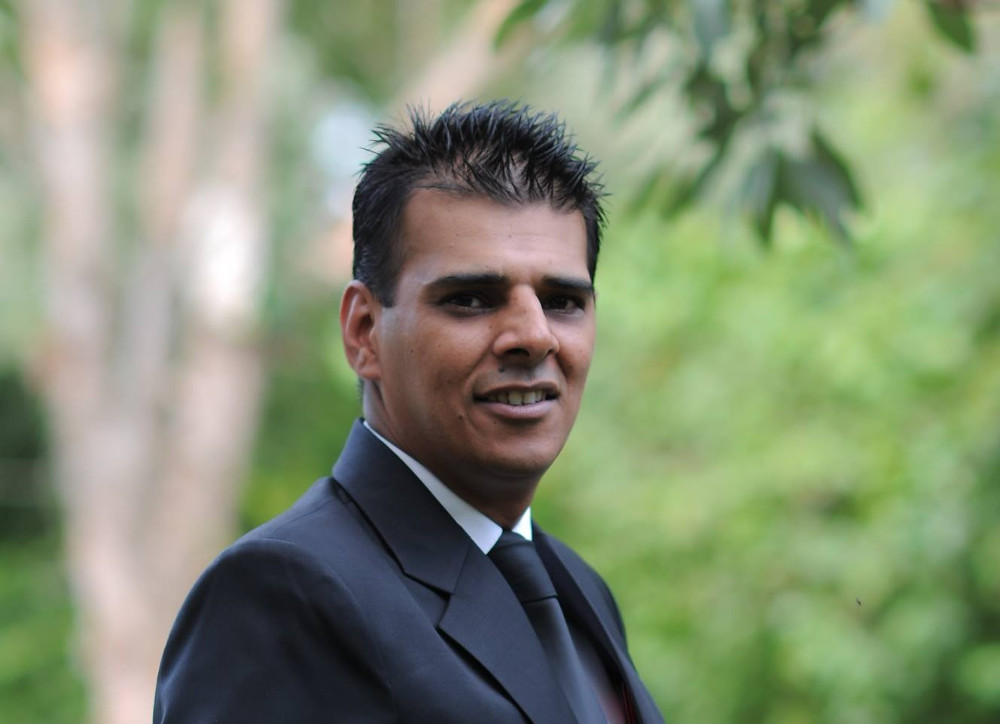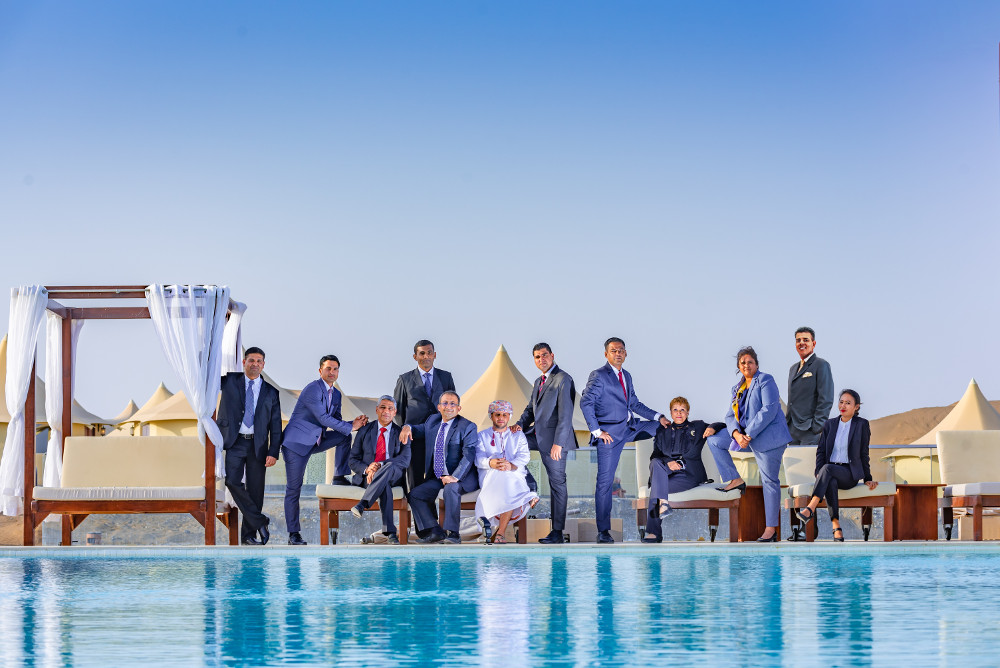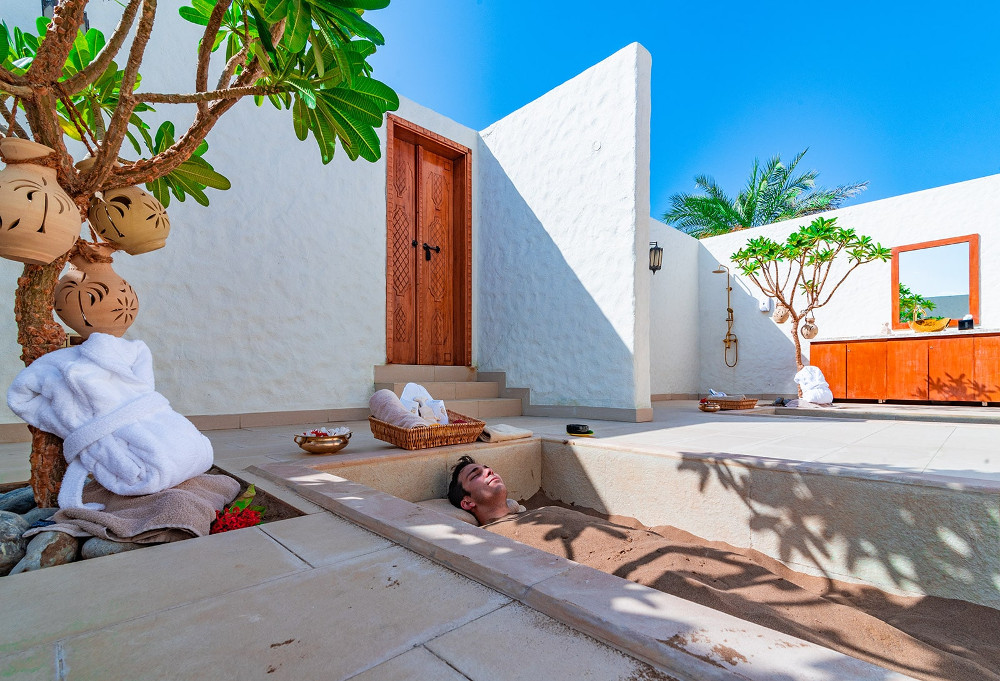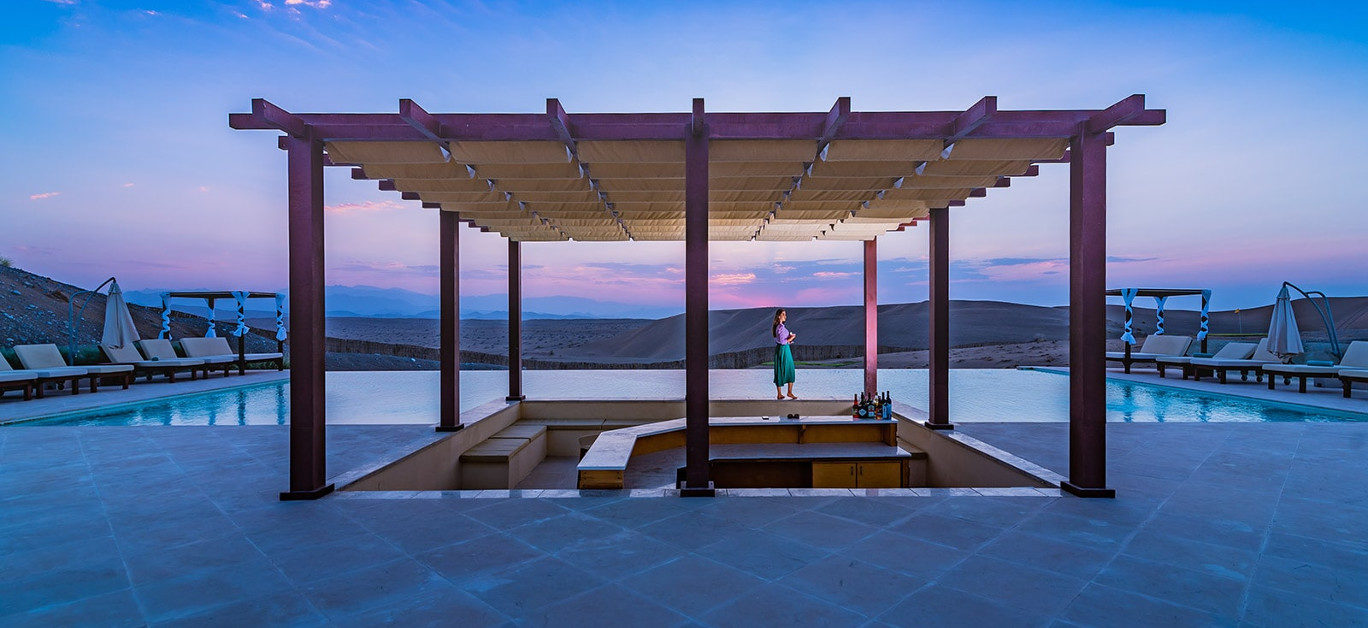As the director of the Al Nahda Hotels & Resorts Group, Divya Ahuja has the desirable job of growing and developing some of the most beautiful hotels in Oman and taking the group’s vision forward through global expansion. “We’re definitely not a cookie cutter organisation,” says Ahuja.
During our time together, he passionately spoke about the ideologies and vision that helped them generate success for the family-friendly Al Nahda Resort and Spa, the off-the-grid Sahab Resort and Spa situated within the Al Hajar mountain range, and the award-winning Dunes by Al Nahda in the South Batinah region.
The Al Nahda Hotels and Resorts Group started off with a restaurant in 2003 and opened its first hotel in 2006. Could you talk me through the evolution of the group from then until the present day?
Our late chairman had this vision to also have a hospitality business amongst his other existing businesses. In 2006, we went about building Al Nahda Resort & Spa, which is our first resort. Our chairman unfortunately passed away in those years that he was planning the resort, and his kids decided to push forward with his vision. We opened Dunes by Al Nahda, which is our premier ultra luxury desert experience. The year it opened, it went on to win Conde Nast’s hot list of Top 100 hotels, and now it has about 15 or 17 awards.
It has a beautiful infinity pool and our own Uru brand spa. Recently we took a management contract after for Sahab, which belongs to the royal family and the government, and we manage that hotel. Interestingly, when we opened Sahab, we were positive about it, and I think we’re in the right direction because in the next 120 days, 45 days are already sold out. Aside from this we have a catering division where we cater for events, businesses, the American School. Because you’re in hospitality you’re open to practicing in different areas. We have new upcoming hotels throughout the Middle East too.

What does Omani hospitality mean to you?
Al Nahda Hotels & Resorts is Omani hospitality. It’s not just regular hospitality. What do I mean by that? If you go to India, for example, people will fold their hands and say Namaste. For Omani hospitality, if you come to Sahab, you’ll be served dates and qahwa (coffee), that’s the way we welcome them. Omanis as people are extremely warm, welcoming, and very friendly. That’s because they’ve been in the business of trade for many years. If you look at the rest of the GCC, they’re very young countries, they’re 50, 70, 100 years old. Oman has been part of the spice route for generations so it understands the value of hospitality in general. It’s hospitality from the heart for us.
Tell me more about your properties. What makes them special and which sort of persona was each designed for?
We like to create identities. Dunes was designed for the ultra luxury traveller: someone who has penache for adventure, besides being on holiday. So sure, come and stay in one of our luxury tents, take a swim in the infinity pool, play a little bit of 9-hole sand golf, go dune bashing, or go on a wadi walk, go to an Omani home to experience local hospitality, get a camel ride with Abdullah our camel, or order room service that’s delivered to you by our two lovely donkeys. It’s a bit of adventure, of course with the regular splash of hospitality. Sahab is in the mountains. We’re very lucky to have hotels in unique locations.
If you were to say for example I want to come to Oman for a week, short of the beach, though we do have tie-ups with different places for beaches, you get to see the complete country, and it’s completely diverse. Al Nahda Resort and Spa on the other hand is in a mango mangrove about 40 minutes from Muscat, and is such a beautiful resort. People always say they want the beach, but you’ll be surprised how many people love the fact that they’re in a resort with mango trees surrounding them but still in a desert experience. In the Middle East, where it’s fairly hot, even in the summer, people want to come because the temperature is 2 or 3 degrees lower.
Oman is actually the only country in the Middle East to rank 0 on the global terrorism index. Are these concerns that you often see yourself dealing with and how do you respond to them?
If you read any surveys by these big organisations, on the best places to live, top five countries to live, Oman is right in there. There is no fear of anything. Terrorism? When you say terrorism, I’m like, what are you talking about? I don’t mean to be rude when I say this, but for a lot of people in the world, ignorance is kind of life. Oman has been one of the biggest trading ports in the Middle East and expats rank it one of the best places to live in the world. And there’s plenty of expats there.
And in general, if you come to Oman they’re sticklers for rules, in a good way. It’s not a bad thing, but by implanting those rules they ensure people are safe and happy. In the last 8 years that I lived there, I rarely heard that there was even a robbery in Oman. You could walk out with diamonds and no one would bother. You could be on the beach and dress as you like and nobody will say anything. Yes, they’re Muslim, but that doesn’t mean they’re going to force their life on you. It’s respectful, in every way possible. I think that’s one of the reasons why expats love it so much, no one wants to leave. I think the one word I would use to describe Oman is inclusive.

A recent Telegraph article named Oman as the perfect location for your next family holiday. Would you agree?
To give you an example, at any of our resorts, you can have a family-friendly holiday. Al Nahda has a kids play area, it has a volleyball court, you can play cricket, football, table tennis, board games. And Al Nahda is I would say our more family-style resort. It’s great for families and is affordable. With Dunes, from golf to infinity pools for kids, to a kids play area, wadi walks, camel rides with Abudallah, you’ve got it all. Let’s go to Sahab, yes I would say it’s family-friendly, but the activities—except for the treks for kids—I would not recommend for small kids, maybe from ages 12 and up. Oman, in general, is incredibly family-friendly. I see international families all the time in our resorts.
The URU Spa holds the title of being the only spa in Oman to have an Egyptian Sand Spa. Could you tell me more about this?
In Dunes, we have the Egyptian sand spa. It’s the only place in the country that has it. Imagine yourself lying in the ground buried in sand with a mixture of various oils, milk, and things, and I will promise you this, the minute you finish it, you feel like you’re levitating. Your skin is exfoliated and you get a massage after too. Apart from the sand treatment, you can also have all of our other spa treatments in your room.
For Al Nahda, it has something called the VegaCheck. The resort also has special treatments for colon treatments. You will be surprised at the number of people who come especially for this. We have a lovely team of spa therapists, managers, and trainers, and we create our own oils for everything. Sahab I think has a combination of most of the treatments we do for our other resorts. It’s a boutique hotel so it has a little spa with two treatment rooms but it is so relaxing and serene. Watching the sunset from the sand dunes at Dunes or the stars and out into the mountain ranges in Sahab is pure zen. Al Nahda has a different kind of zen. It’s more jungles and there are so many trees. Imagine in the Middle East, hearing birds. You don’t usually hear birds in the Middle East!

Many people also think that Oman or Muscat is just like another Dubai. Is this a fair assumption?
Before you land in Muscat, make sure you take a window seat. You will see this village where houses are not more than two storeys, you have a nice light brown, off-whitish colour, and you get this impression that you’re landing in a hamlet-style village. And then when you land, you’re in one of the most modern top 25 airports in the world. As part of the government’s initiative to maintain tourism, growth, nature, business, they haven’t allowed buildings to be constructed above 2-3 floors. It’s so that you can see the dunes, the mountains, the sea all in your view. Compared to Dubai, where all you see are buildings and a man-made ice skating rink. It’s like saying Muscat is day, and most other GCC countries are night. We haven’t allowed ourselves to be polluted in that form.
For me, most of the GCC is a concrete jungle, and there’s nothing wrong with that, that’s one kind of experience. But the natural, rugged beauty of the GCC truly is in Oman. From the mountains, to the wadis, the dunes, the beaches, the souks for shopping. Because it’s a Sultanate, it has a history, so the Omani people are very beautiful and proud. There is that added element that you can’t put a finger on, but because it has so much history and heritage it’s different. I would say a week would be generally a good enough time for a visit. But you will fall in love with Oman. I have never met anyone who’s been in Oman for let’s say a year or so, who wants to leave.
What is traditional Omani cuisine like? How do your restaurants showcase these for gastronomically-curious guests?
We’re very bespoke in our F&B experience. So there’s something called a shuwa pit: it’s dug into the ground, you take meats, and you wrap them in palm and herbs and you let it cook for 12 hours. That’s Omani food. I cannot tell you how succulent it is. Now, sweets. Some of the nicest sweets I’ve tasted are Omani sweets. But more than anything else, I think the reason why Omani food tastes so good is because it is cooked with passion and love. Most of our chefs really believe in that. Besides the regular recipe being excellent already, the amount of love that they put into their food makes the food amazing. Of course we have menus for every place, but sometimes the chefs will walk up and talk to the guest and say “What do you feel like eating today?” and he’ll make something bespoke for them. Our young chefs at Dunes even won the National Hospitality Institute’s Oman Chefs Competition early this year. They were up against teams from The Park Hyatt, Shangri-La, InterContinental, and more, but they persevered.
Main image: Dunes by Al Nahda pool
For more information please visit: anhrgroup.com






















